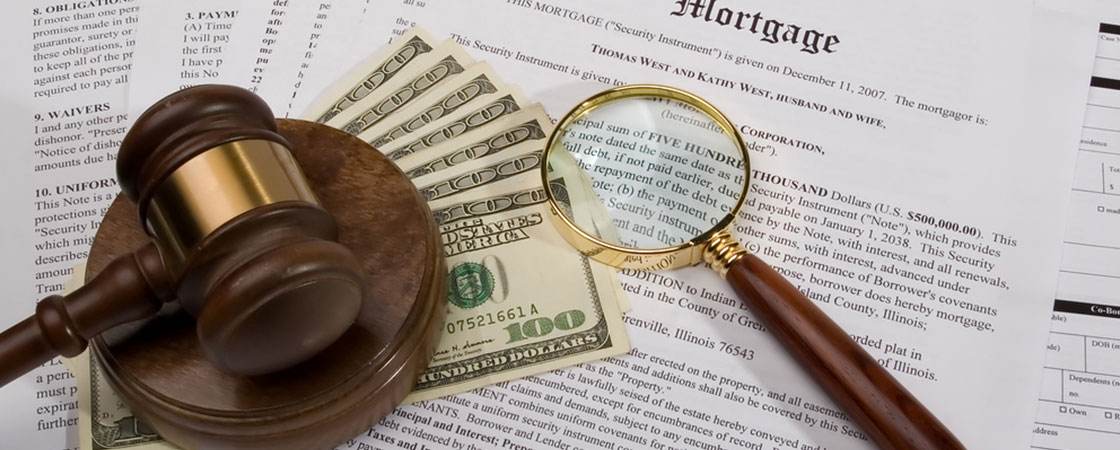Mortgage fraud can include a range of schemes that are used to complete a mortgage contract and may have serious penalties for those found guilty of the crime.

The process of buying a home can be overwhelming, with a lot of paperwork to track and the huge financial decisions you need to make in the process. It’s not uncommon to make a mistake along the way or miss a piece of key financial information you should have disclosed- however, when information is omitted or misrepresented intentionally, this is known as mortgage fraud.
Mortgage fraud is defined as the deliberate act of lying or omitting information that is used by an underwriter or lender in the process of funding, purchasing, or insuring a mortgage loan. Both borrowers and lenders can be guilty of mortgage fraud. There are two main categories of this crime:
In addition to these broad categories, there are a number of common schemes that are a part of mortgage fraud. These include:
While fraud cases are considered federal crimes, some instances may also result in civil suits being filed. This usually occurs when an applicant misrepresents their ability to repay a loan or a lender makes a loan they can reasonably foresee the borrower will not be able to repay. In these cases, the goal is for the plaintiff to recover money from the defense due to the fraudulent terms of the loan.
Civil liability is often in addition to criminal liability, leading to monetary damages being repaid outside of the sentence handed down in criminal court. Third parties involved in the fraudulent transaction can also be a part of these suits.
Mortgage fraud cases usually fall to the Federal Bureau of Investigation (FBI). Because it is considered a white-collar crime, the agency will choose cases with the most consumer impact and the highest potential loss to investigate. The FBI’s list of most wanted fraudsters can include those accused of mortgage fraud. State officials and law enforcement agencies can also investigate claims within their own jurisdiction.
Not every case of mortgage fraud makes it to charges being pressed. Prosecutors tend to look for cases where there is evidence of intentional cheating and large amounts of money to be made. However, if an aggrieved party brings the instance to their attention, anyone can be accused of mortgage fraud with enough evidence.
If you are accused of mortgage fraud, it is important to ensure you have all relevant records on hand and easy to access. Share these with an experienced criminal defense attorney who focuses on white-collar and financial crime, as they can identify items in these records that help prove your innocence.
The penalty for mortgage fraud will depend on the jurisdiction of the charge, state or federal. Criminal mortgage loan fraud can be investigated at the state level, but charges are ultimately handed down from a federal court of law within the state where the original crime was committed.
Most cases result in a judgment of financial restitution in addition to other penalties. Federal mortgage fraud can carry a sentence of up to 30 years imprisonment and up to $1 million in fines, not including restitution. The US Code does not specifically lay out charges for mortgage fraud, but it is considered comparable to mail fraud, wire fraud, and bank fraud.
State penalties are often less severe than federal penalties, though they depend on the state statutes. Many will have different punishments based on the material value of the crime. For example, mortgage fraud involving less than $100,000 in material may be considered a third-degree felony, which can carry up to 5 years in prison. A similar crime concerning over $100,000 in material may be considered a second-degree felony with up to 15 years in prison possible.
The defendant’s history is usually a strong factor in sentencing for mortgage fraud. For buyers who may have no criminal history, sentencing may be more lenient, whereas industry professionals who have been a part of schemes in the past could face the most serious of consequences.
In any fraud case, a skilled criminal defense attorney is a critical piece of your defense as they will understand the complexities of financial law. Fraud cases require the prosecution to prove both knowledge and intent on the part of the defense, meaning that simple mistakes are not considered fraudulent. A good defense will indicate that you were not aware of the misinformation and how it would impact the mortgage and that your intention was not to commit fraud.
It will also be helpful to prove you took steps specifically to avoid fraud. For buyers, that may mean that research was done into the history of the property, the sellers, the agents and brokers, and any other parties. It may also mean proving that you verified information on applications thoroughly. For industry professionals, providing detailed information on contacts and history can be crucial.
If you have been accused of or charged with mortgage fraud, find a white-collar defense attorney who can help you understand the charges and any implications they may have, as well as help you navigate the complexities of your case.